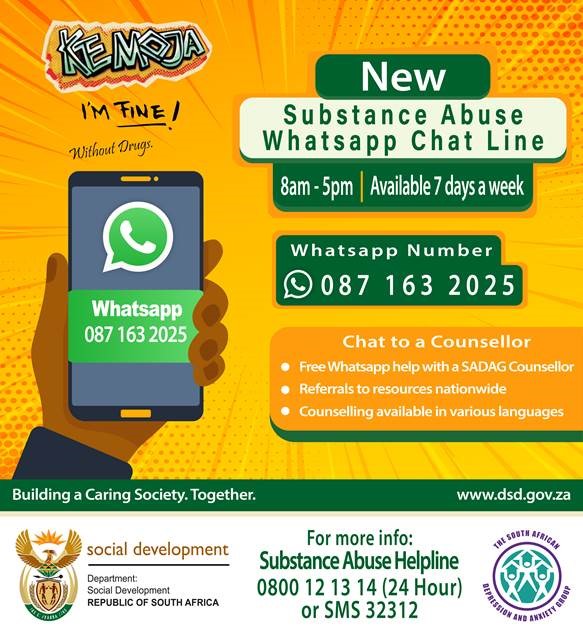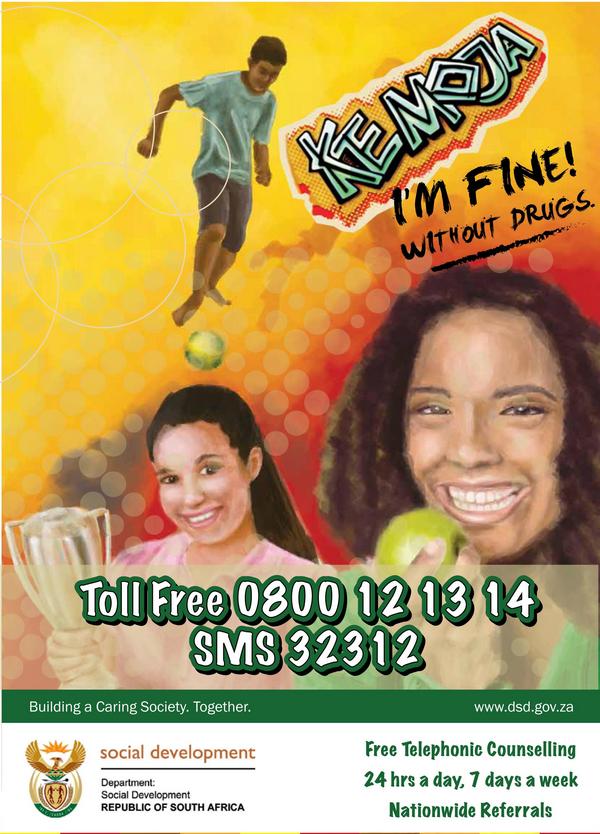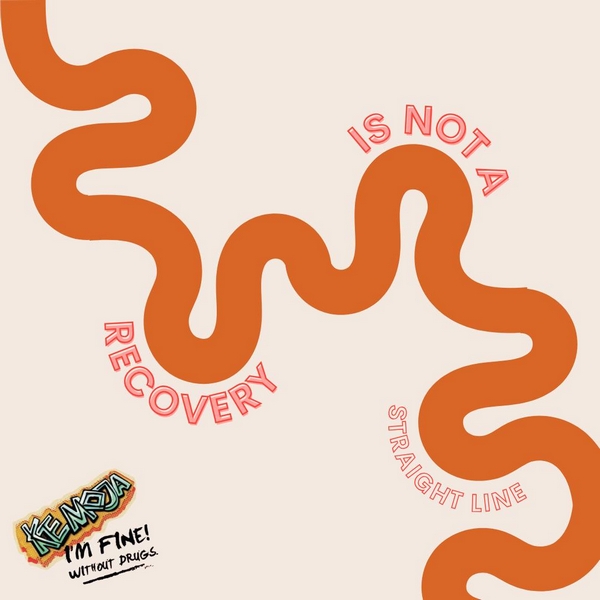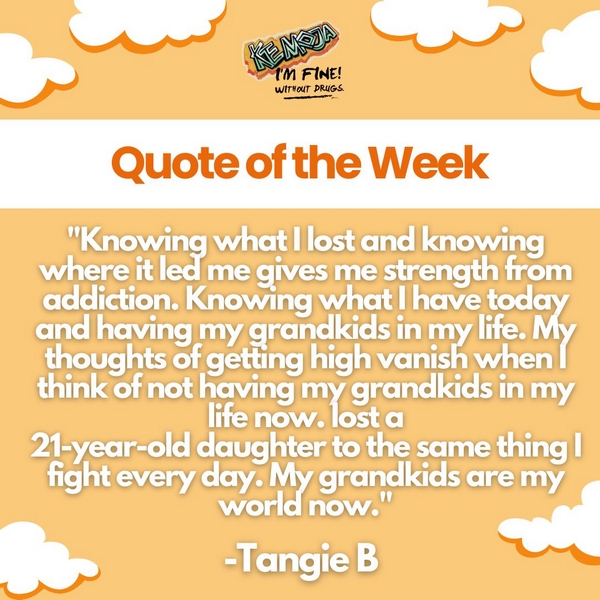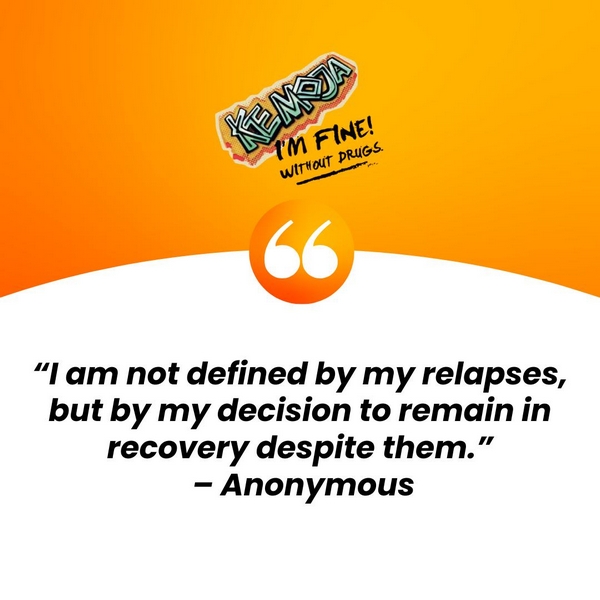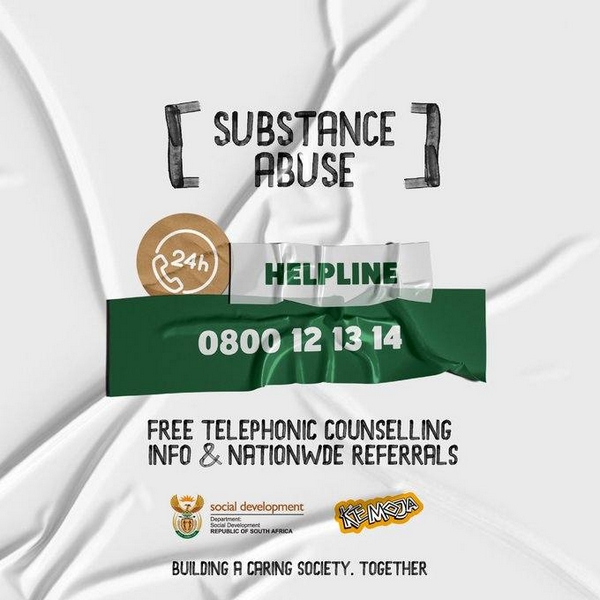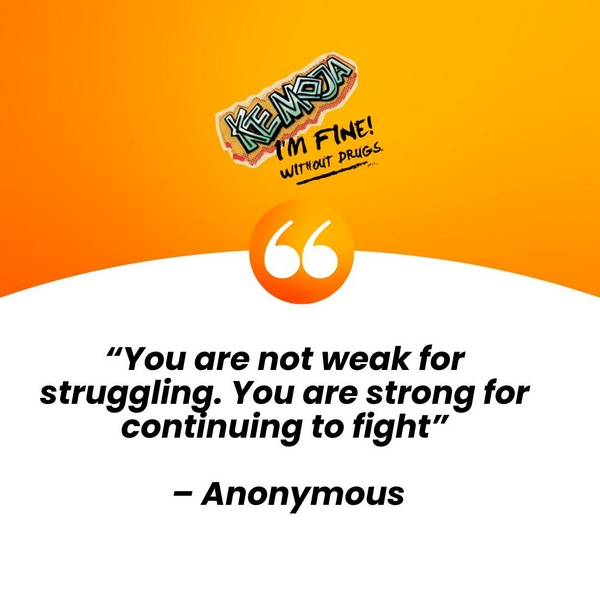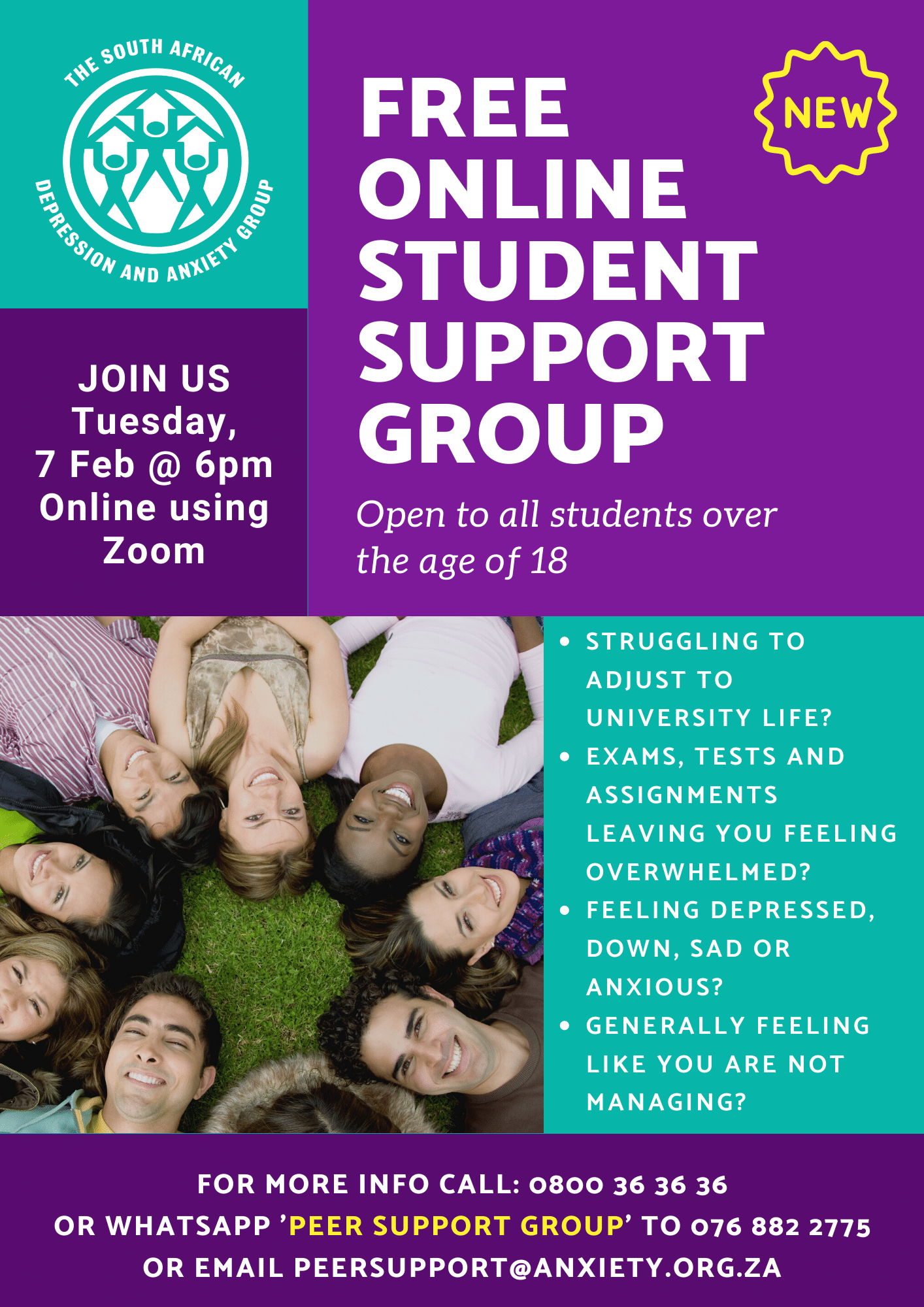Substance Use Awareness
THE PERSON LIVING WITH SUBSTANCE USE DISORDER
What are the most common substances that people misuse?
We have found on the SADAG Substance Abuse Helpline that callers are most commonly using alcohol, dagga, crystal meth, tik and Nyaope, often it’s a combination of these different drugs together that people are using or abusing. We are also seeing more and more people using over-the-counter medication or prescription meds, but people are less likely to disclose as this isn’t always seen as a problem to the person using them.
South Africa has a drinking problem
- Fifth highest alcohol consumption rate amongst drinkers in the world
- That means while a lot of South Africans do not drink at all, those who do drink, drink excessively
- 60% of South Africans who drink are considered binge/heavy drinkers
- Approximately 10% of deaths each year are from alcohol-related causes
- One of the globally highest rates of alcohol-related road deaths – nearly 60% of road fatalities are due to alcohol
I think I may have a problem, what now?
- The first step towards stopping using substances is to acknowledge you may have a problem
- The best time to seek help is yesterday, the second best time is today
- Alcoholics Anonymous is free and open to everyone, and there are groups all over the country
- Reach out to SADAG to find support in your area
- Those who have struggled and continue to struggle are there to support you and understand what you’re going through
- It is never too late to seek help
Signs I have a problem
- You’ve tried to consume less but weren’t able to
- Kept using even though it’s having a negative effect on work, family or friends
- Pattern of getting into risky situations
- You find yourself often using more or longer than you intended to
- Withdrawal
- Tolerance
- You are hiding your consumption from others
Things to keep in mind:
- Once you have a substance use problem, it is with you for life
- That doesn’t mean you can’t quit alcohol, but it means you can never have a normal relationship with alcohol
- If you have a substance problem, you cannot simply “cut back” or “drink only on weekends” –
- Once you start you will not be able to stop
- Quitting substances requires a massive level of commitment – you will have to cut alcohol out of your life completely
- This can mean drastic life changes – change in environment, friends, activities
- This is hard – but it will save your life
What are the long-term consequences of substance use on Mental Health?
Long-term substance use can have serious effects on Mental Health. It can lead to issues like depression, anxiety, and memory problems. Over time, it can also worsen existing Mental Health conditions or even trigger new ones. Continuous substance use changes the brain's chemistry, making it harder to feel happy or relaxed without drugs or alcohol. This creates a vicious cycle where the person uses more to try to feel better, but it ends up causing more harm to their Mental Health in the long run.
Is Substance Use Disorder generational?
Substance use disorder (SUD) can sometimes run in families because of both genetics and the environment. If someone has family members with SUD, they might be more likely to develop it themselves because of inherited genes. Also, growing up around substance use can make it seem normal and more likely to happen. Basically, both our genes and what we see around us can play a big role in SUD, so it's important to consider both when thinking about prevention and treatment.
- There are some factors which have been identified as putting a person at a greater risk of developing alcoholism
- Existing psychological conditions such as depression, Bipolar, anxiety
- Personality types
- A family history of alcoholism
- Drinking “culture” in environment and family
- Life stressors
- Lack of familial support and intervention from a young age
- Age drinking begins – the younger one begins to drink, the more likely they are to develop an issue
- The factors mentioned make someone more likely to develop alcoholism than their peers, assuming all else is equal
- Someone can have many of those factors present and not develop a drinking problem
- Alcoholism is something that can happen to anyone
How can people reach out to SADAG
24 hour Substance use Tollfree Helpline 0800 12 13 14, as well as the WhatsApp chatline – 087 163 2025
FAMILY MEMBERS / LOVED ONES / COMMUNITIES AND THEIR ROLE IN SUBSTANCE USE AWARENESS
How can family members be proactive in supporting the person who is addicted?
- Understand your loved ones substance use – did they perhaps start to cope with emotional pain, self-medicating, misuse of prescription drugs, peer pressure, to fit in or perhaps to alleviate boredom or dissatisfaction within their lives.
- Recognise drug abuse in a loved one
- Look for physical signs, clingfilm, rolling papers, needles, burnt foil, spoons, prescriptions, pill blister packs
- Adjust your expectations, not everyone’s journey looks the same
- Encourage your loved one to seek help
- Address co-occurring issues/situations things, situations or people that may be triggers
- Plan for triggers and cravings
- Help them find new hobbies or activities that bring them joy
- Change your mindset – don’t view relapse as a failure but rather an opportunity to learn from mistakes and navigate a new way forward
- Set healthy boundaries and avoid enabling – substance users must stand up to the consequences of their behaviour
- Take care of yourself; find support, manage stress, practice acceptance
Family members can be proactive in supporting someone with addiction by showing empathy, avoiding judgment, and encouraging them to seek help. It's important to educate themselves about addiction, offer a listening ear, and be patient. Setting healthy boundaries and providing a stable, supportive environment can make a big difference. Encouraging them to attend treatment programs, counselling, or support groups, and even participating in family therapy sessions, can also be very helpful. Remember, being there for them without enabling the addiction is key.
Why don’t Substance Users Reach out for help?
- They don’t think they have a problem – as we mentioned before drinking is a common activity, and so it’s easy to convince oneself that their drinking is normal
- They may have tried to stop drinking and failed, and feel like they can’t
- They are worried it will jeopardize their relationships
- They feel embarrassed or ashamed
- They worry they could lose their job
- They don’t have a support system to reach out to
- They don’t want to quit
How important is intervention from a community to help a household struggling with Substance Use Disorder
Community intervention is crucial in helping a household struggling with Substance Use Disorder (SUD). When neighbours, local organizations, and support groups come together, they can provide much-needed resources, emotional support, and a sense of belonging. This collective effort can help reduce the stigma around addiction, making it easier for the affected individuals and their families to seek help. By offering practical assistance, such as connecting them with treatment programs or providing childcare during counselling sessions, the community can play a vital role in the household’s recovery journey and overall well-being.
Why can’t people stop alcohol and drug misuse?
- While at some point someone decided to use substances, someone who is suffering from substance abuse has lost control
- It may seem easy to simply not use, but for a substance user that may be as difficult as not drinking water or eating
- Everything inside them, physically and mentally, is screaming at them to use
- Quitting alcohol once you have developed an addiction is no less difficult than quitting hard drugs
- “Cold turkey” is not always possible – Alcohol and Substance withdrawal can kill you
- We need to change the way we view and understand Alcohol and Drug misuse – and view it as a disease or illness rather than a personal failing
What does intervention look like from a family community members
- Trying to help someone who is suffering with alcoholism can make us feel helpless – try not to take this personally
- See something, say something, don’t wait
- Choose when to talk, make sure you are both calm and substance-free, make sure you are in a distraction-free environment
- Relapse rates are high, and it can take several attempts to stop using substances
- Quitting a substance when one has become dependent is extremely difficult
- It takes a huge amount of personal motivation to quit using
- This means you cannot “force” someone to stop drinking
- Ultimately, nobody can quit unless they want to
- Listen even when you don’t agree, try not to argue or contradict them – the more they feel heard and supported the more likely they will confide in you
- Share helpful information with them
- Intervention probably won’t be once off and a single conversation won’t fix the problem
-
From a family or community member's perspective, intervention involves stepping in with care and support to help someone struggling with substance use disorder. It means having honest, compassionate conversations to express concern and encourage the person to seek professional help. Family members might organize a formal intervention with a counsellor or simply offer to accompany their loved one to appointments. Community members can provide support by sharing information about local resources, offering practical help like transportation, or being part of a support network that encourages positive change. The key is to approach the situation with empathy and a focus on helping the person get the assistance they need.
What language can one use to encourage a person struggling to seek help?
-
- Come from a place of compassion and understanding. Often starting to use a substance is an attempt to cope with painful issues or Mental Health problems
- Stress or strong emotions can lead to further misuse, so try to be emotionally supportive
- It is encouraged to let somebody know the effect their drinking has on you and those around them
- Don’t assume that because someone uses substances they don’t care about or love you
- Speak openly and often
- Ask them how you can help
- Avoid lecturing, threatening bribing or punishing can enhance feelings of shame and guilt and reinforce their need to use
Speaking directly to someone that you might be worried is using drugs or alcohol, is always scary and daunting. You can start with a conversation using phrases like “I am really worried about you, I noticed ABC”. Using more “I” language is less accusatory or laying blame. Saying things like “I really am worried about you and I think you need to speak to someone for help. Let’s do it together” can open a conversation.
How do you know what warning signs to look out for in someone who may be using or abusing drugs or alcohol?
Keep an eye out for any changes in behaviour, from acting out to withdrawing from others. Look out for signs of anger, frustration, and irritability. Someone who is not able to sit still. Always seem drowsy or confused, have slurred speech, are acting recklessly or have a sudden change in mood.
There is a marked impact on their day to day function – missing school or work, not looking after themselves (cleanliness, personal hygiene), sleeping too much (staying up all night/several days without sleep, and then sleeping for very long periods), negative impact on relationships (fighting all the time), abusive or physically aggressive. There might be times when you suspect they are stealing things or money, they are more secretive more often and want to be alone away from others, etc.
Look for physical signs, bloodshot eyes, needle marks, dilated pupils, and changes in hygiene
- Drinking leads to arguments and conflict
- Financial strain
- Putting yourself or your family at risk
- Damage to reputation
- Your spouse trying to hide your drinking problem
- Domestic violence
- Emotional or physical abuse
- Family distress, especially between parents
- Neglecting your children
- Children take on parental responsibilities for siblings or the home
Online Videos

WEBINARS:
- Get insight on available resources in state funded programmes and rehabilitation centres - Click here
- Unpacking the services and support offered to patients and loved ones by civil society organisations - Click here
- Hear about the lived experiences of patients as well as of loved ones affected by substance abuse - Click here
ASK THE EXPERTS:
- The Impact of Drug Abuse Amongst (June 2022)
- Over the Counter Medication (June 2022)
- Exploring The Reality of Hard Substance Abuse (April 2023)
- Beyond: Addiction - Harm Reduction & Substance Use Disorder (Feburary 2024)
- Alcohol Awareness Month - Confronting Denial: Exploring It's Impact on Alcohol Dependency (April 2024)
Press Releases

PRESS RELEASE
Help is just a phone call away (22 June 2023)
Talking to Your Children About Alcohol and Drugs is Key to Preventing Substance Abuse (26 June 2024)
NEWSLETTERS
- New Whatsapp Helpline Launched Aimed At Youth Substance Abuse (23 June 2022)
- Substance Abuse Awareness Day (26 June 2022)
- SADAG's Substance Abuse Webinar Series
- Hope and Recovery: Substance Use Awareness Day (26 June 2024)








